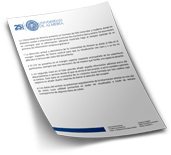Objectives and Competencies
{{pre.error[0].message}}
{{pre.error[0].message}}
The Master's Degree in “Educational Innovation Policies and Practices” is intended to train specialists of the highest level, who are prepared to deepen their understanding of educational phenomena and be capable of promoting, developing and analysing educational innovations, whether as a researcher or in practice. The training programme is designed to help those involved in educational processes develop experiences of transformative practices so that, in response to the challenges of today's world, they can facilitate the autonomous development of citizens in inclusive contexts, from the recognition of uniqueness, promoting equality, equity and solidarity.
We understand innovation to be those changes oriented to improving conditions, contexts, processes and results that are an appropriate response to the needs and aspirations of individuals and collectives, thus promoting holistic and free development. The transformations and changes that we call innovations are those that improve and favour the development of educational processes. Educational processes that help every individual develop his or her own knowledge, skills, attitudes and behaviours in a conscious, reflective and informed way, leading to the construction of his or her own personal identity, of his or her own ways of thinking, of feeling and of acting, open to reflection, experimentation, contrast and reformulation.
The Master's in “Educational Innovation Policies and Practices” has a mixed professional and research profile aimed at providing students with specialized academic and practical training, which permits the training of competent professionals who can analyse, promote and develop innovative and competent experiences, and to design and develop research processes in school and non-school contexts.
The objectives guiding the development of the Master's degree, in keeping with its purposes and profile, can be systematized in the following way:
Competencies are the identifiable and evaluable set of knowledge, attitudes, values, abilities and skills, related to each other, which will allow the student to exercise the professional activity according to the requirements and standards used in the corresponding occupational area.
All the master’s at the University of Almeria explicitly include two types of competencies:
The basic competencies for all master’s degrees were defined in R.D. 1393/2007 of 29 October. They will be progressively adapted and as established by the current R.D. 822/2021 of 28 September, which establishes the organization of university education and the quality assurance procedure.
| CB6-To possess and understand knowledge | That students have demonstrated they possess and understand knowledge that expands and improves on that associated with the first cycle, providing them a basis or opportunity for originality in developing and/or applying ideas, often in a research context. |
| CB7-Application of knowledge | That students know how to apply the knowledge gained and are capable of problem-solving in new or unexplored settings within broader (or multi-disciplinary) contexts relating to their field of study. |
| CB8-Ability to make judgements | That students can integrate knowledge and face the complexity of making judgements based on incomplete information which, being incomplete or limited, includes reflections on the social and ethical responsibilities linked to applying their knowledge and judgements. |
| CB9-Communication capacity and social aptitude | That students know how to communicate their conclusions –and the ultimate knowledge and reasons that support them– to both specialized and non-specialized audiences in a clear and unambiguous manner. |
| CB10-Learning skills | That students possess the learning skills that will enable them to continue studying in a way that will be largely self-directed or autonomous. |
The specific competencies provided by this degree are listed in the degree report.
